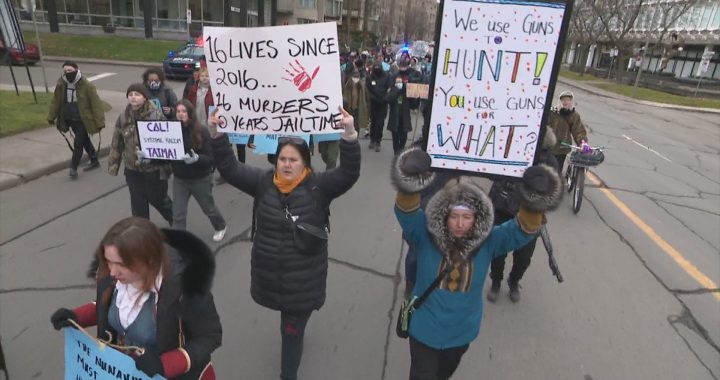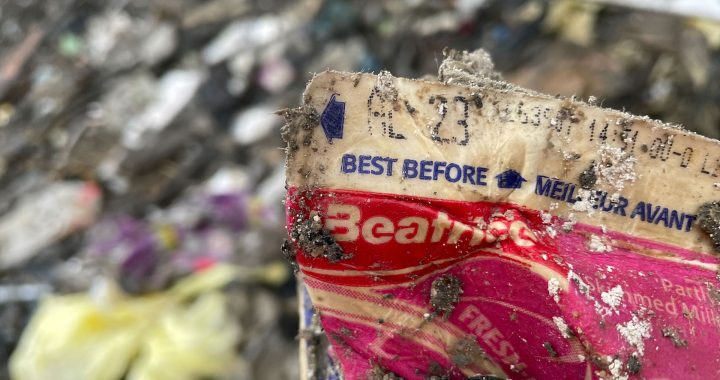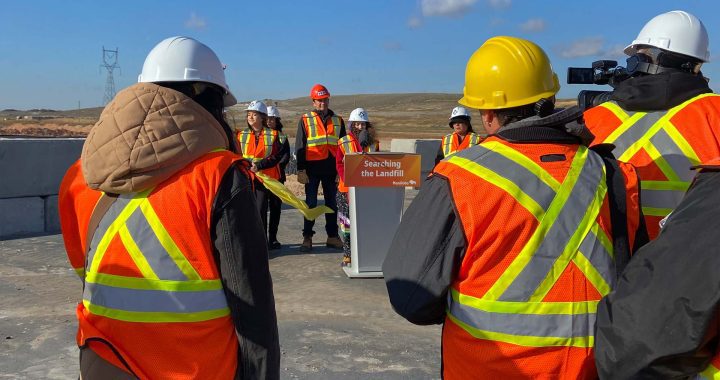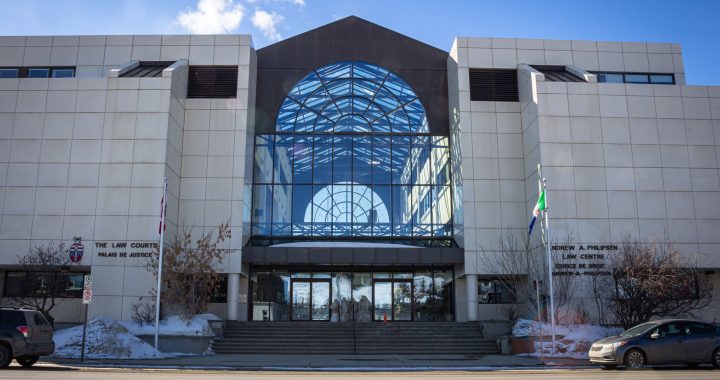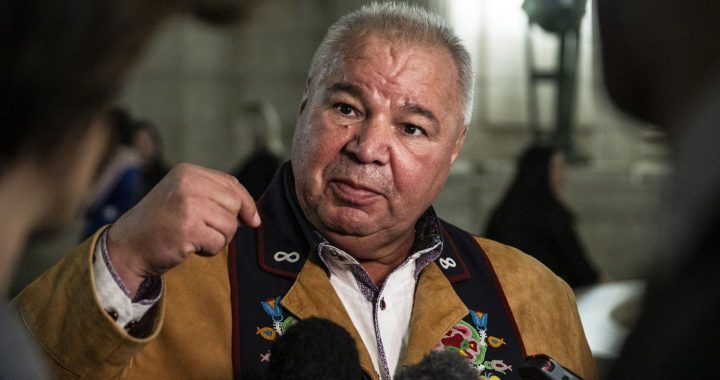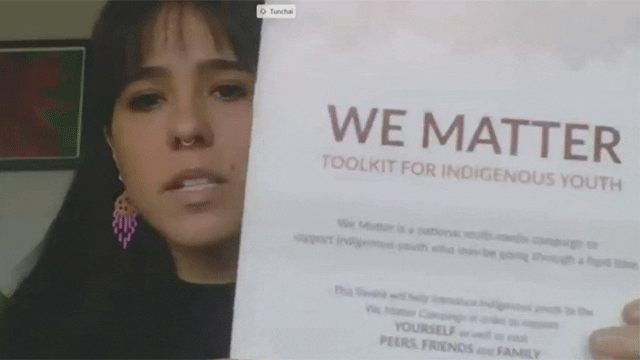
APTN News
Indigenous youth leaders gathered for a virtual town hall Thursday afternoon to discuss the ways young First Nations, Inuit and Metis can maintain mental health and wellness as the country’s Covid-19 isolation period stretches into spring.
“Young people are stuck inside. School is cancelled. Sports programs are cancelled,” Tunchai Redvers told the town hall, which was hosted online by First Nations Health Managers Association (FNHM) and Indigenous Health Today (IHT).
Students are stranded away from their communities. Others can’t visit family members and Elders. Social gatherings are banned. Lines for essential services stretch down streets and round corners. The novel coronavirus pandemic cancelled St. Patrick’s Day and Easter. Birthdays, celebrations, milestones and so much more have passed in solitude. No one knows how long this “new normal,” as the prime minister says, will last.
Redvers, co-founder and executive director of We Matter, an Indigenous youth support organization, explained that Indigenous youth already have limited access to mental health and life promotion resources.
And pandemic conditions exacerbate unsafe situations some youth find themselves in.
“There’s going to be and is an increase in anxiety, in depression, in suicidal ideation and self-harm, young people turning to some of those unhealthy coping mechanisms because they don’t have other ways to stay busy, as well as an increased sense of hopelessness.”
But young people are also finding new ways to connect in isolation – starting online beading group and meeting through social media. They need assistance, however. Not everyone has high-speed internet. Some youth aren’t connecting with messaging coming from health officials and government, which reveals a need for communications from youth movements.
“You have everything you need within you,” Redvers said.
“In those moments where you feel alone, remember that you’re part of something bigger. You have the blood, you have the roots of your ancestors within you, and that’s so, so powerful.”
‘Before you ask people for their hand, show them your heart’
Redvers was joined by members of the AFN Youth Council, who echoed the sentiment.
“We have to have youth-led messages. When we have messages coming from another entity that doesn’t represent us, it is hard to connect. So, we have to relate to the messages,” said Cedric Gray, the council’s Quebec representative.
There is “mistrust of different government entities,” he explained.
Which is why the messaging needs to be adapted into terms young people understand.
Instead of telling them what to do, ask them to join a movement.
“We know that Elders are incredibly important for First Nations youth,” so frame the need for physical distancing in those terms.
“To protect our Elders, to protect our knowledge keepers, to protect those that are the most important to our community we have to do things differently at least for a little while.”
And try to be positive.
“We have enough negativity in our lives. We have enough news that is making all of us afraid. Let’s use positive messaging.”
Rosalie LaBillois, co-chair for the AFN Youth Council, agreed that youth, as future leaders, should be the voice for youth.
“If we’re given the change to be able to manifest that future we want to see and have that space provided for us, then we could see beautiful things take place.”
She encouraged young people to find a silver lining in the solitude, to see the present situation, struggle and discomfort aside, as a “blessing in disguise.”
“The changes we’ve been seeing across the world – animals coming back, the skies are clearing up again and seeing mountains. We weren’t listening, we were never listening, but it was mother earth. She decided when that time was. It’s just for us to wake up, to wake up and to listen to these messages that are being brought.”
She too stressed the importance of Elders for Indigenous young people, and ended the town hall with a teaching from one of her own.
“Before you ask people for their hand, show them your heart,” she said.
“It’s about showing up for people. You could talk the talk but if you don’t walk the walk then it’s not the same.”
We Matter has resources and toolkits for youth and adults on its website, including more information about it’s #HopePact campaign that was “created in response to suicide pacts that were going around in Indigenous communities,” Redvers said.
The Canada Suicide Prevention Service enables callers anywhere in Canada to access crisis support using the technology of their choice (phone, text or chat), in French or English: Phone: toll-free 1-833-456-4566 Text: 45645 Chat: crisisservicescanada.ca





